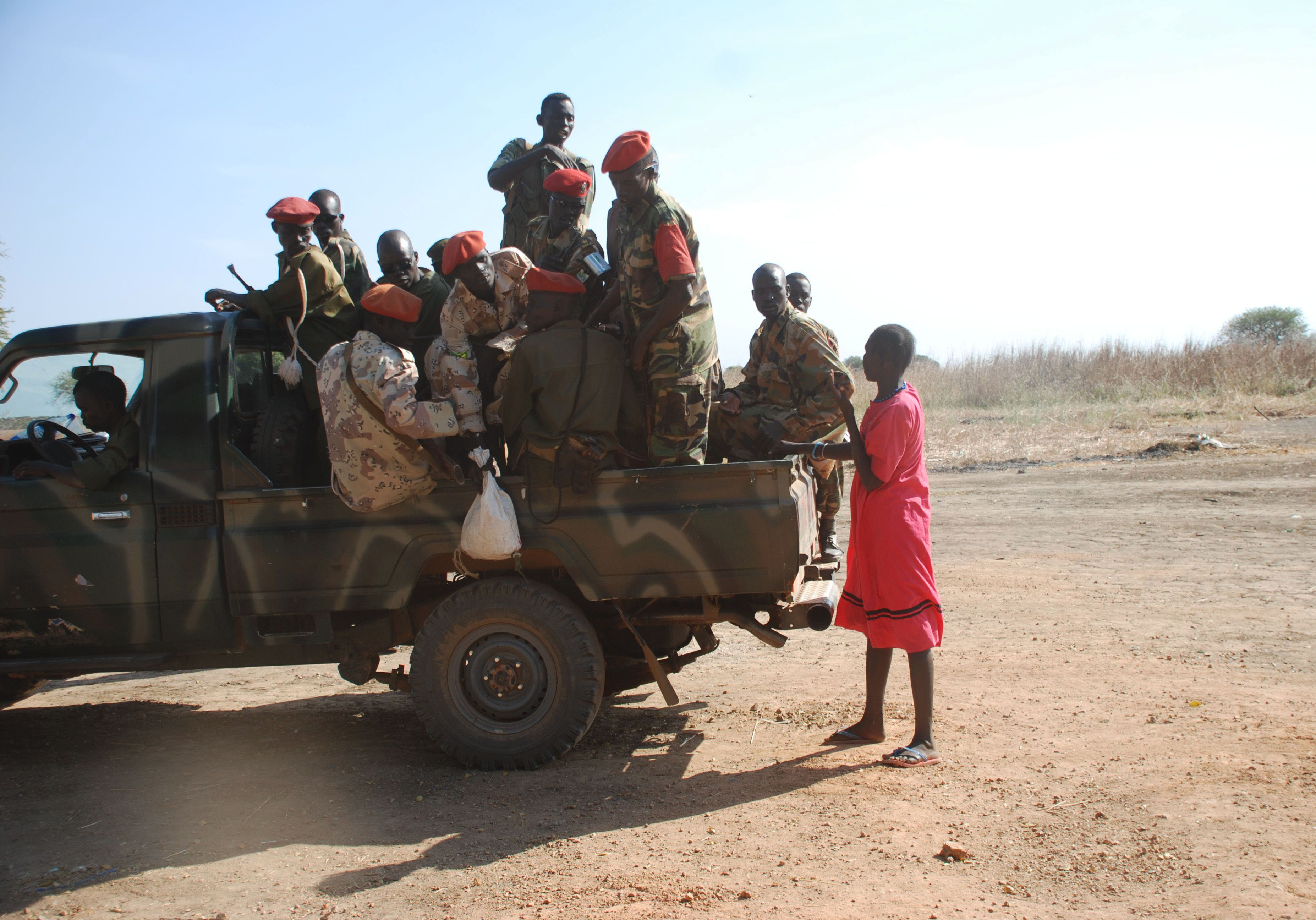
In the aftermath of recent flare-ups in Upper Nile between South Sudan’s army and southern militias, the southern government has quickly blamed its northern counterparts for the ongoing instability. “SPLM-DC and Lam Akol are funding Olony,” said one SPLA commander. “They are being instigated by the North to fight the South,” the governor of Upper Nile told Enough. The Associated Press quoted SPLM deputy Pagan Amum saying, “[The north ruling party] have stepped up their destabilization of Southern Sudan by creating, training, and arming and financing various militia groups in Southern Sudan.” And while northern complicity should be investigated, the strategy of the southern army vis à vis militias is also worth a look.
The SPLA has decided to take on a more pre-emptive role rather than being on the defensive, as they were in recent months when they worked to entice splinter factions to come into the fold ahead of the referendum. Now, targeted military operations are underway to look for Olony and Athor. Yet this strategy seems to have developed after the more recent attacks, not as part of a larger security framework. What is clear from the recent violence is that the southern government needs to establish what the rules of engagement will be in its continuing attempts to mitigate insecurity from militias. A crucial part of that question is the degree to which civilian protection is prioritized and the role of UNMIS or any other international organizations, in assisting with that mandate.
How much the SPLA has taken collateral damage into consideration in its operations to take out militia groups was recently raised in a piece by the Associated Press. The AP uncovered internal U.N. documents that suggest that the southern government has instructed UNMIS to avoid areas where the SPLA is currently conducting operations. Despite the U.N.’s need for access to fulfill its civilian protection mandate, it appears – both through media reporting and from the dearth of information about how civilians are faring – that the U.N. capitulated to GOSS’s demand, creating an environment where the SPLA can conduct its operation without the U.N. monitoring its tactics.
Civilians invariably face negative repercussions from such operations, particularly in a setting where the distinction between militia member and civilian is not always clear. The recent operation against George Athor in the Fangak, Ayod, Malakal triangle has generated uncharacteristically low numbers of displaced people, leading some Enough sources to speculate that the SPLA may be preventing civilians from fleeing. “The SPLA are going from house to house in Malakal, and anyone without an ID is being detained and interrogated,” said one resident. “Everyone is preferring to stay indoors.”
Meanwhile, the potential for continued SPLA-militia fighting is high. For one, militia leader Gabriel Tanginye, who re-appeared in northern Jonglei, is reportedly watching and waiting to see how events in the area unfold. Although his intentions are vague at the moment, some suggest that he has come from Khartoum to find new recruits. His ties to Athor also remain unclear. “He has a political connection to Athor, but not a military one,” said one of Tanginye’s relatives to Enough. Athor, who recently led a series of attacks in Tanginye’s village in the New Fangak area, may currently be avoiding Tanginye, although not for long.
“Tanginye’s situation is very confusing,” said the relative, “We don’t really know what he’s doing or has in mind. Earlier he publicly blamed Athor for killing some family members. But no one in his family is dead. We don’t know why he is lying or creating such an image.”
The SPLA has begun to realize that its strategy of buying off rebel leaders by offering them amnesties and high ranks in the army may not necessarily be working. Robert Gwang, another militia man, is allegedly being re-integrated into the SPLA at the same rank he held before he defected. The SPLA hoped to do the same with the others, but as recent events underscore, ceasefire agreements and GOSS overtures to militia leaders ahead of the South’s referendum apparently pale in comparison to other incentives and aspirations that militia leaders believe are within grasp.
Photo: A southern Sudanese woman approaches a pickup full of SPLA soldiers (Enough/Laura Heaton)

